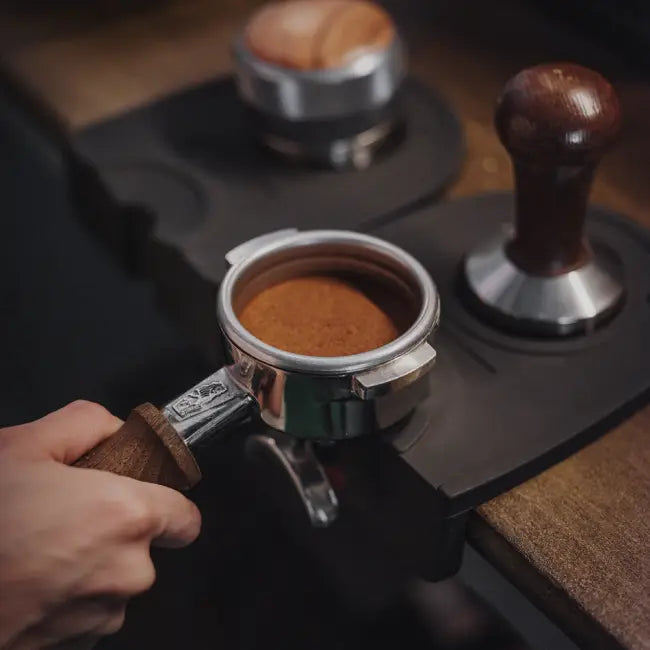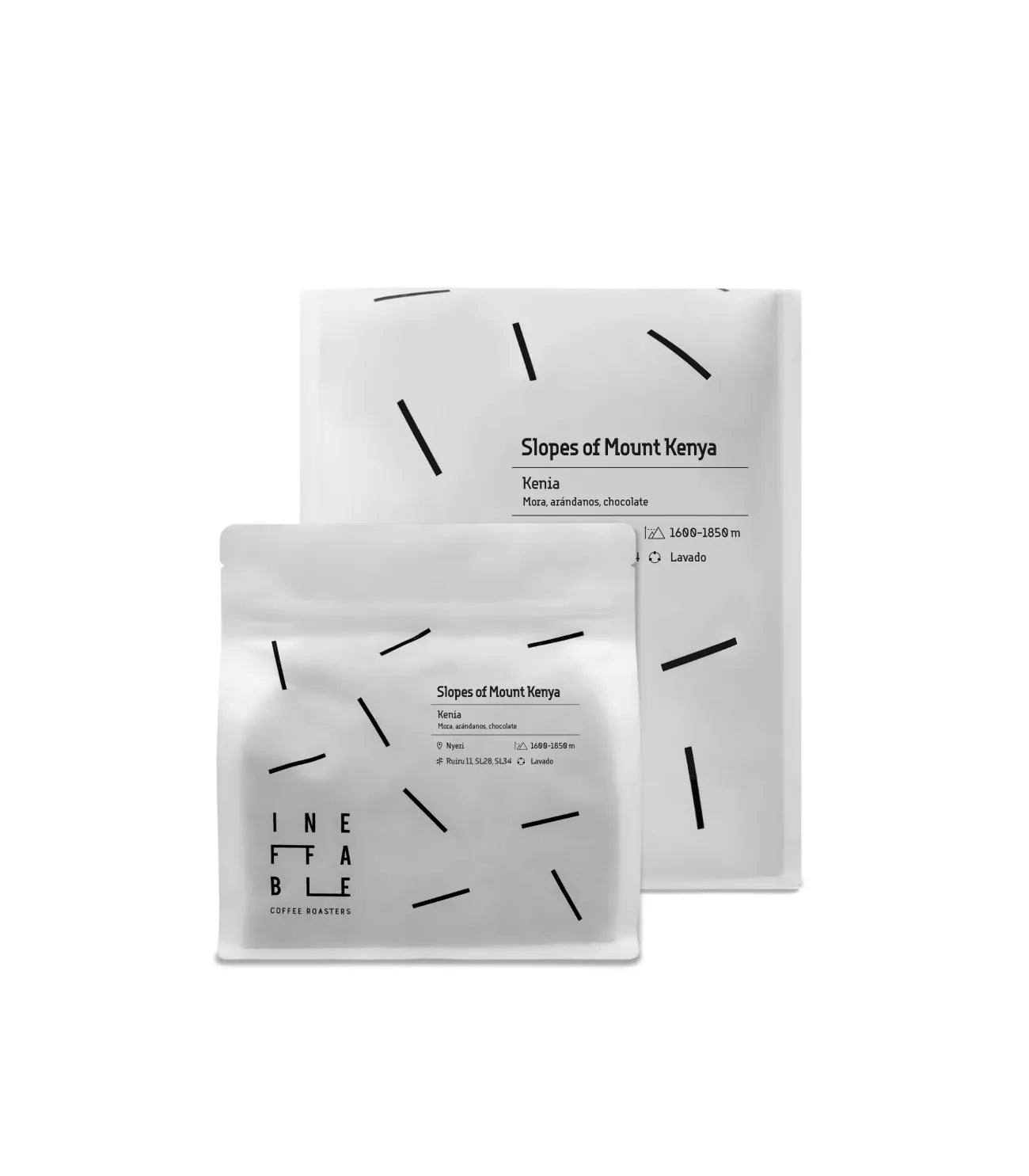
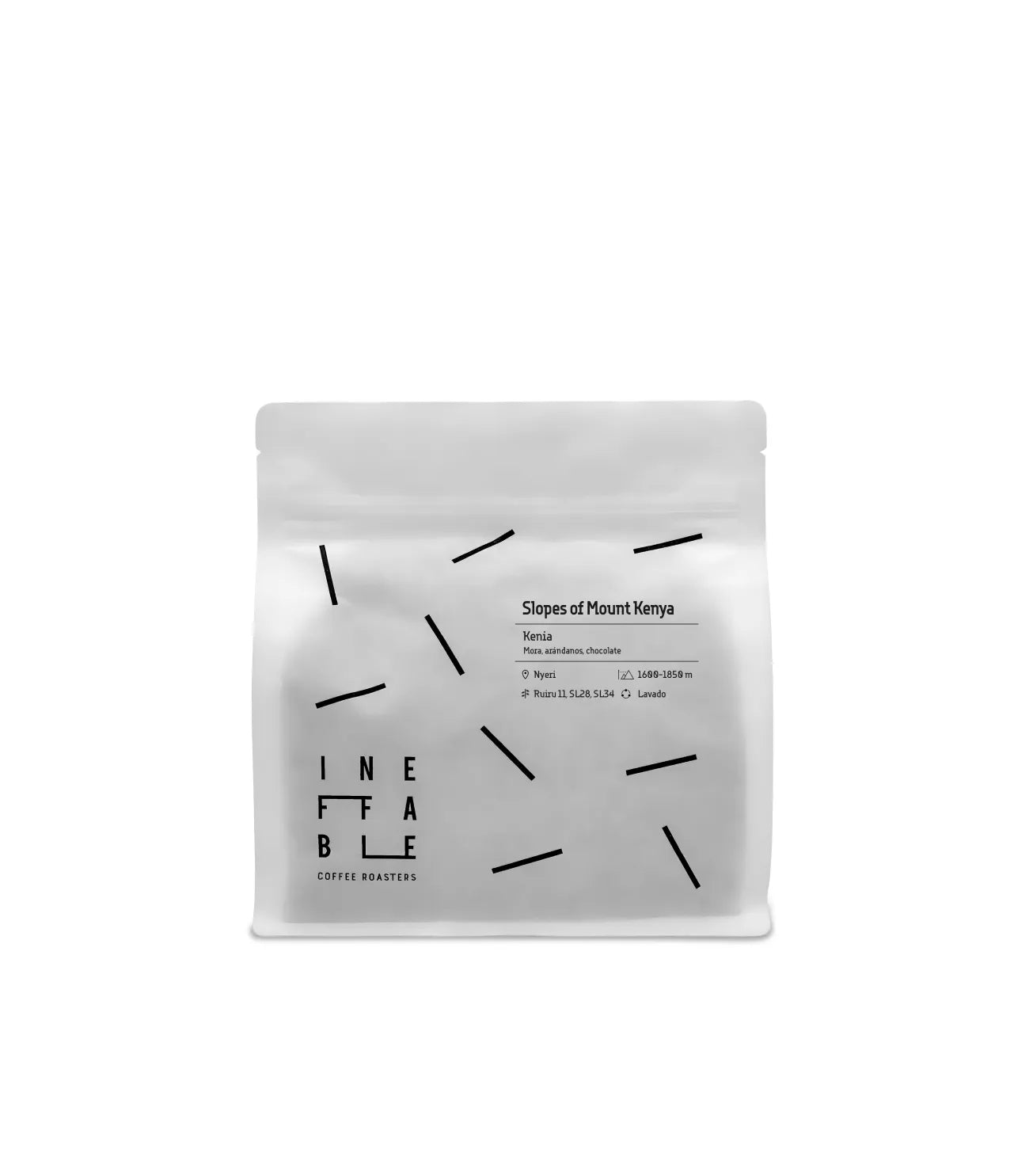
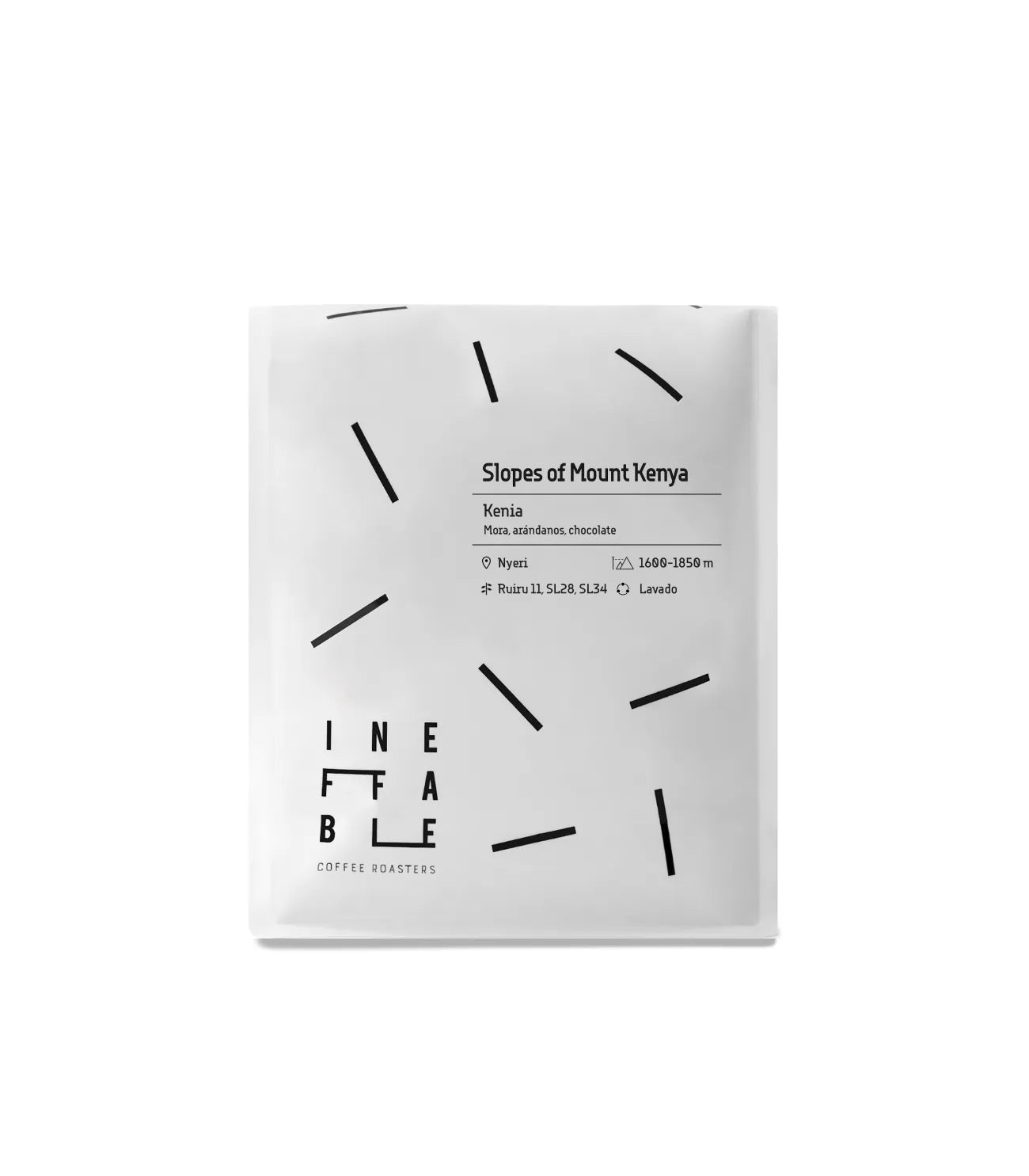

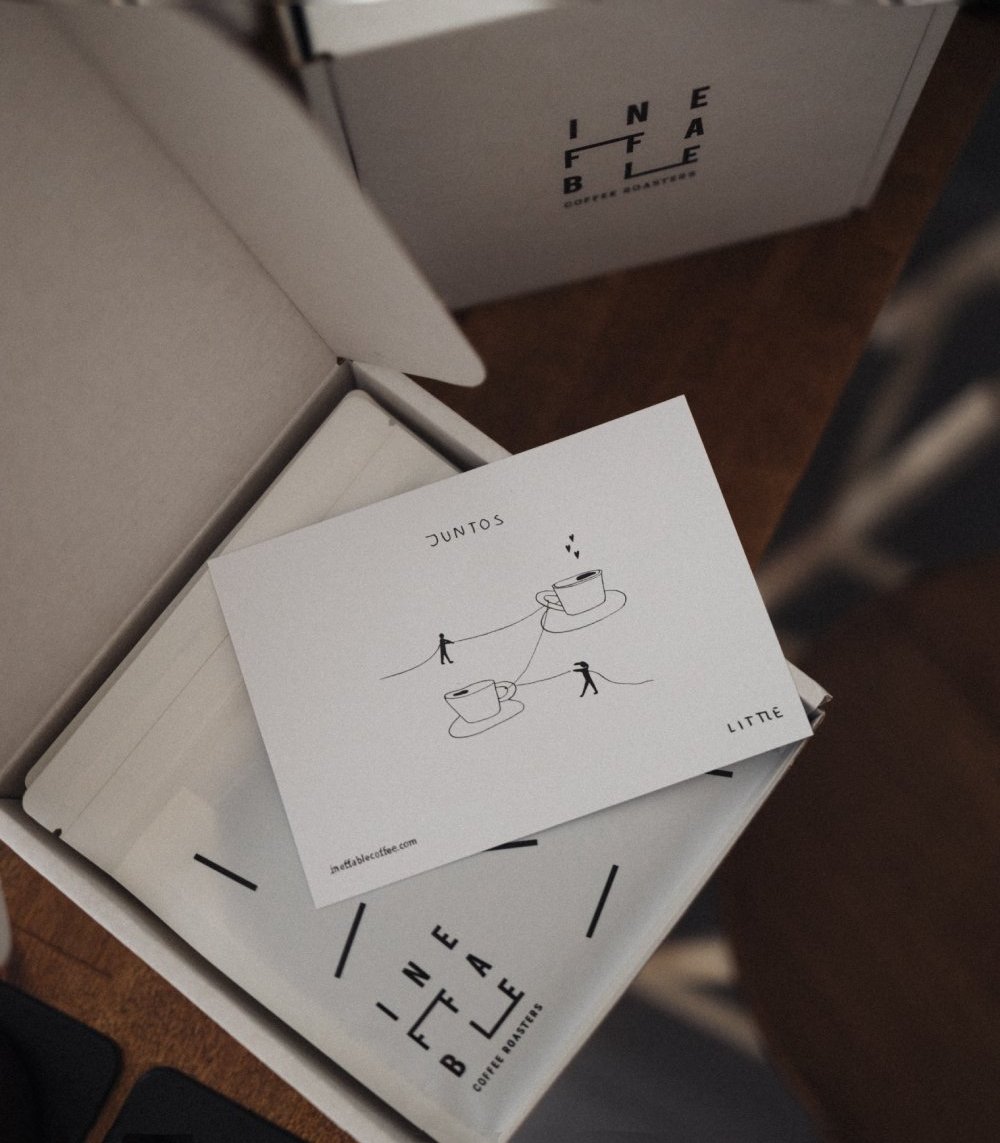
Slopes of Mount Kenya
This lot comes from small-scale producers who grow coffee on the slopes of Mount Kenya, the country’s highest peak and the second tallest mountain in all of Africa.
In the cup, it stands out for its sweet fruity notes of blackberry and blueberry, supported by a base of honey and cocoa with a chocolatey undertone. The finish is long-lasting, with a gentle acidity and a creamy body.
Details of this coffee
Recommended brewing:
Espresso
Tasting notes:
Blackberry, blueberry, chocolate
Processing method:
Washed
100% Arabica botanical variety:
Ruiru 11, SL28, SL34
SCA score:
85
Producer:
Smallholders
Region:
Nyeri
Altitude:
1600 - 1850m.
Harvest:
2025
Origin:
Kenya
Cantidad
Shipping information
FREE SHIPPING
Spain (Peninsula)
>40€ / Delivery 24/48h LV
Balearics
>40€ / Delivery 3/5 days, LV
Portugal
>40€ / Delivery 3/5 days, LV
Europe
>99€ / Delivery 4/7 days, LV
Shipping information
Spain (Peninsula), Balearic Islands and Portugal
- Free shipping on orders over €40 for the Peninsula, Balearic Islands, and Portugal
- For orders under €40, shipping costs are €4.
- We do not ship to the Canary Islands, Ceuta, Melilla, or Gibraltar.
- You will receive a tracking email for all shipments.
- Delivery times are met for 99% of shipments. Please note that we are subject to the proper functioning of our external logistics partners.
- National and/or regional holidays may affect estimated delivery times.
- Delivery to the Peninsula in 24/48 hours, LV.
- Delivery to the Balearic Islands in 3/5 days, LV.
- Delivery to Portugal in 3/5 days, LV.
Europe
- Free shipping on orders over €99 for all orders that include coffee.
- Countries included: Austria, Belgium, Bulgaria, Croatia, Czech Republic, Denmark, Estonia, France, Finland, Germany, Greece, Hungary, Ireland, Italy, Latvia, Lithuania, Luxembourg, Monaco, Netherlands, Poland, Romania, Slovakia, Slovenia, and Sweden.
- For orders under €99, shipping costs are automatically calculated when you enter your shipping address in the shopping cart.
- Delivery in 4/7 days, LV.
- You will receive a tracking email for all shipments.
- Delivery times are met for 99% of shipments. Please note that we are subject to the proper functioning of our external logistics partners.
- National and/or regional holidays may affect estimated delivery times.
- We do not ship to the United Kingdom, Switzerland, the United States, or the rest of the world.
Ineffable Points
Now, with the IneffablePoints points system, you can get the most out of your recurring coffee purchases.
How does it work?
Very simple, with each purchase you will automatically receive:
- 10 IneffablePoints for every €1 spent on coffee orders and subscriptions.
- 1 IneffablePoint for every €1 spent on accessory orders.
How and when can I redeem points?
Visit our IneffablePoints section to see all the coupons available to you:
https://ineffablecoffee.com/en/pages/ineffable-points
There you can redeem discount coupons or coupons for gift products.
The operation is simple:
- Choose your favorite coupon or discount.
- Generate the coupon.
- Return to your shopping cart.
- On the checkout screen, you'll have a field to redeem the generated coupon.
IneffablePoints are automatically associated with your customer account.
You can check all the information and your IneffablePoints balance at any time by accessing here:
https://ineffablecoffee.com/en/pages/ineffable-points
Reviews of our product
Fresh seasonal coffee
Freshly roasted in Seville
Eco-Friendly Packaging
Fair price
Caution to producers
Traceability from farm to cup

